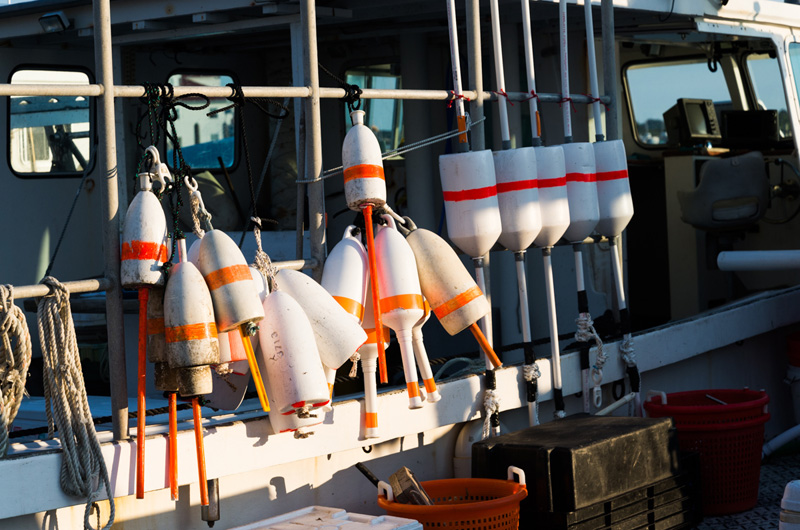The Martha’s Vineyard Fishermen’s Preservation Trust recently completed a deal to lease a valuable sea scalloping quota to West Tisbury fisherman Sam Hopkins.
The lease of the nearly $1 million sea scalloping quota marks the first of its kind for the trust, which has been working to establish a permit bank to help commercial fishermen on the Island stay in business.
Mr. Hopkins plans to go sea scalloping on Endurance, a 49.5-foot converted Canadian lobster boat equipped with a 10-foot dredge. In an interview, he discussed the challenges facing the industry today, including price fluctuations, weight restrictions on landings and high startup and maintenance costs.
The quota the trust is leasing to Mr. Hopkins will allow him catch up to 17,000 pounds of sea scallops this year.
“When an organization like this steps up and provides quota at a cost that’s fishable, that’s reasonable, it doesn’t make the year, but it makes the year possible,” Mr. Hopkins said.
Mr. Hopkins got his start as a fisherman in the 1970s, cutting scallops.

“As a teenager, I got to go offshore scalloping, you know, on boats here off the Vineyard, and just kind of stuck with it,” he said. “I’ve done other things as the fishery goes through changes, the ebb and flow, the regulatory problems we’ve gone through,” he said. But now fishing is once again his primary occupation.
The Vineyard fishermen’s trust is modeling much of its work on work done by Cape Cod Fisheries Trust, a Cape-based nonprofit that has a permit bank that leases quota to more than 100 captains.
The Vineyard trust worked closely with Paul Parker, former director of the Cape Cod Fisheries Trust and founder of Catch Together, to obtain the sea scallop quota.
President John Keene said he hopes to replicate the success of Cape Cod Fisheries Trust on the Vineyard and sees the sea scallop permit as a critical first step:. “What it does for the community — it will help out an existing scalloper and it will help out other scallopers to come,” he said.
He added: “The beauty of securing this quota . . . . it shows us as a group that we can reach really high and achieve what seemed to be an impossible goal.”
Obtaining the quota cost more than $1 million and involved involved extensive fundraising. The quota itself cost $950,000 and a qualifying permit cost $60,000, Mr. Keene said. The trust raised $500,000 on its own and received two $250,000 loans from investors.
The trust also used some funds to secure a groundfishing permit for conch, sea bass and scup that formerly belonged to Luke Gurney an Oak Bluffs fisherman who died in an accident at sea in June 2016.
Now the trust is working to develop a program called Luke’s Legacy to place the permit with a young, qualified Island fisherman.
The trust worked with the state Division of Marine Fisheries to create a pilot program that allowed the permit to be transferred. Previously corporate entities were not allowed to hold such permits; instead they had to be transferred directly to fishermen.
“This policy allows a permit to be parked temporarily while the trust locates a fisherman who will fish it… we thought this policy would help ensure permits weren’t migrating away from the Island,” said DMF deputy director Dan McKiernan.
“We’re breaking new ground,” he added.
Mr. Keene agreed.
“Every time a permit leaves a community, it doesn’t really come back,” he said. “We’re trying to keep communities fishing.”







Comments
Comment policy »